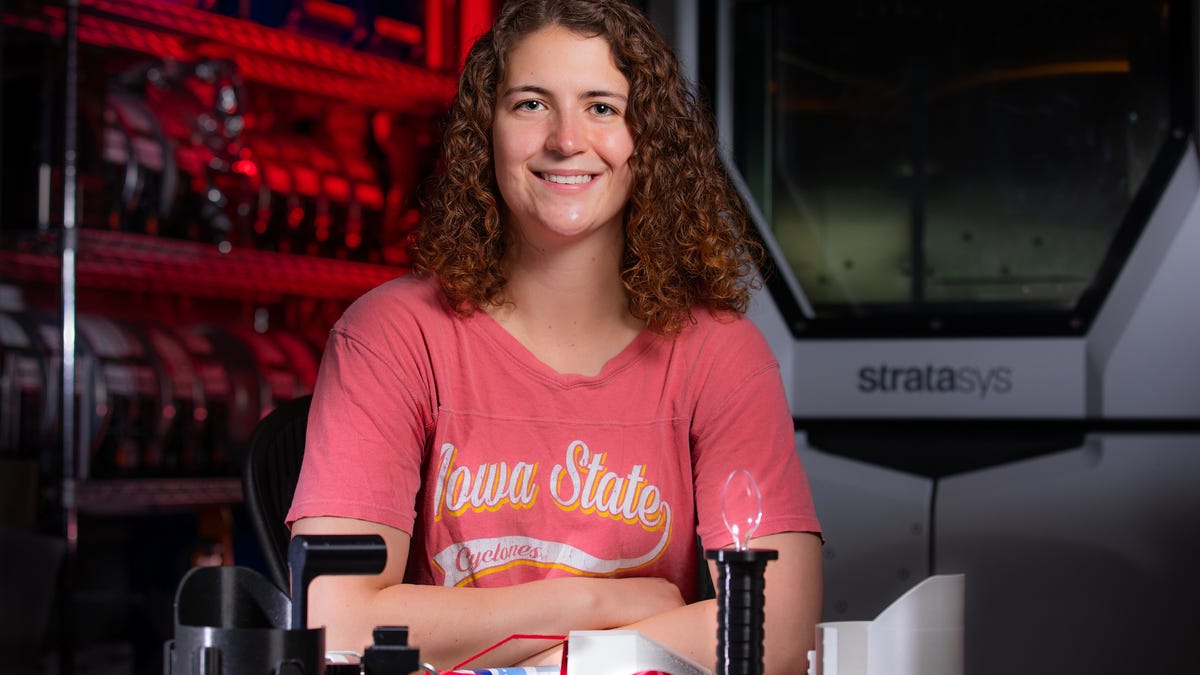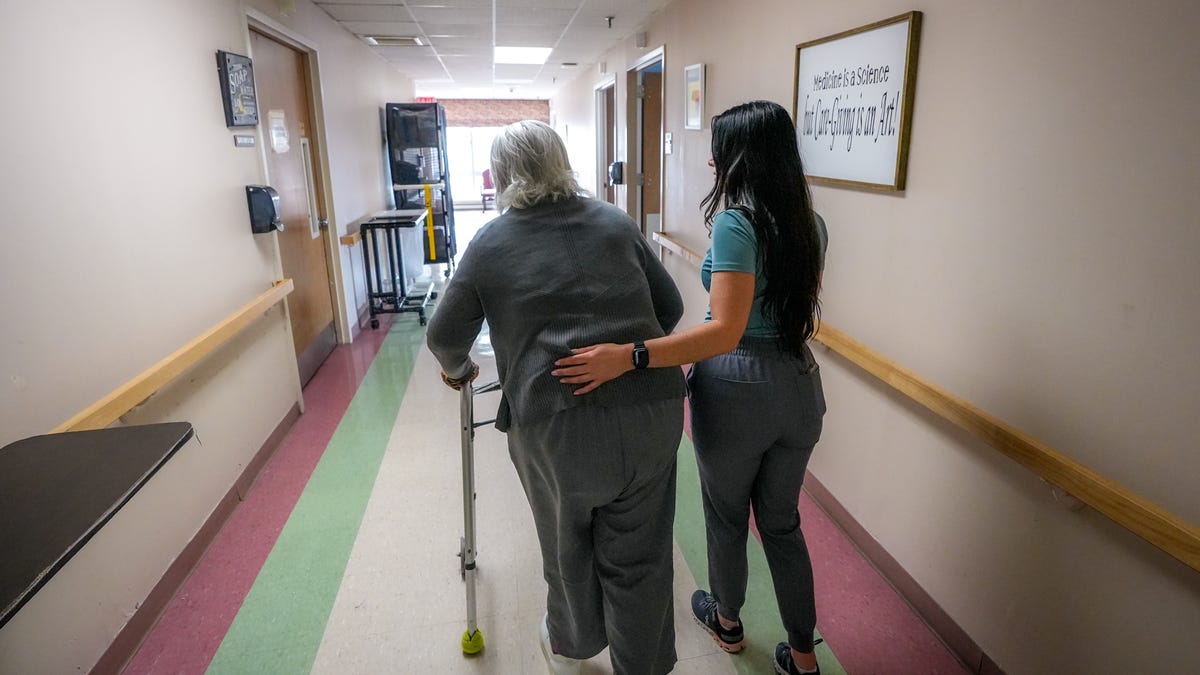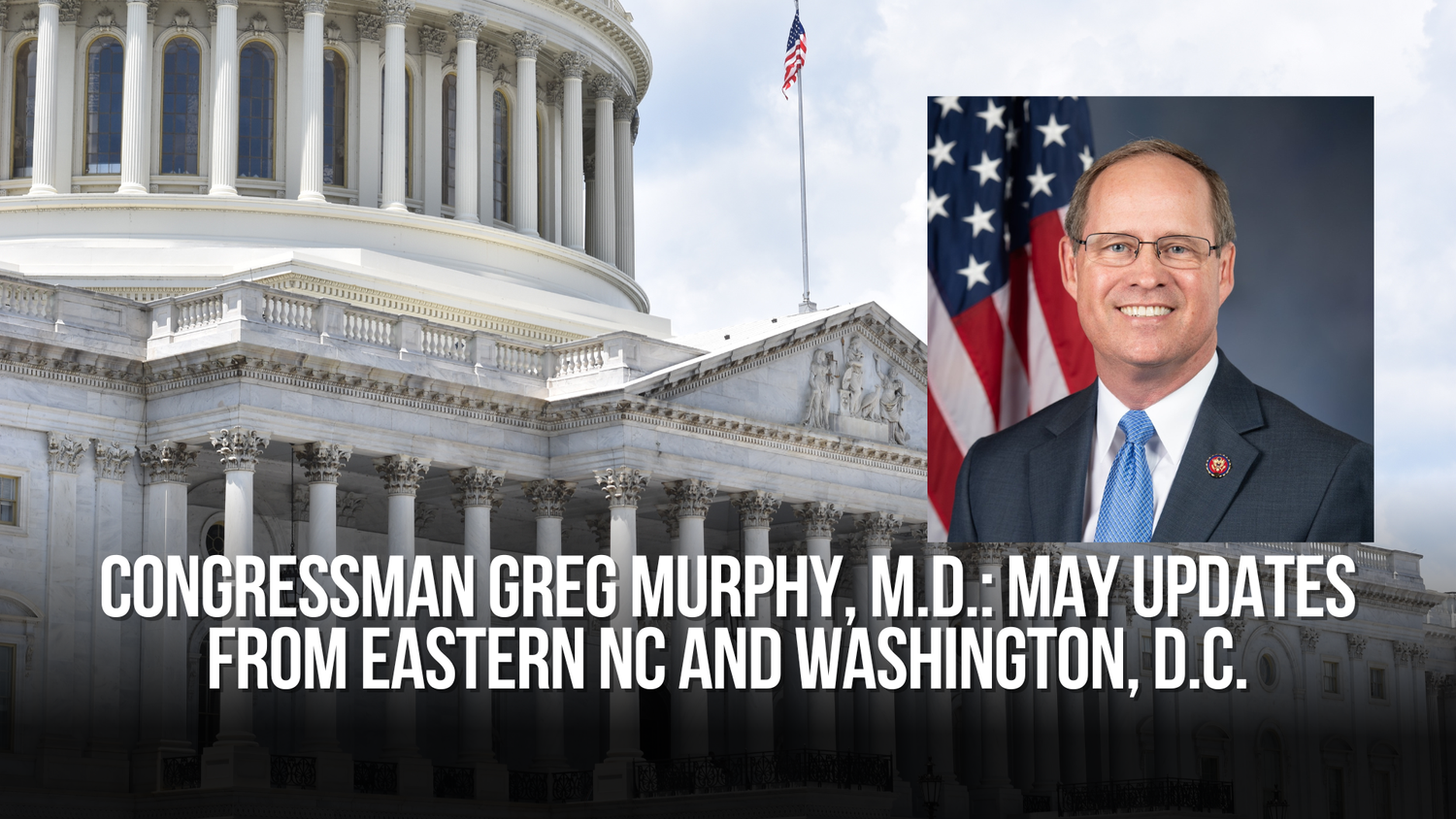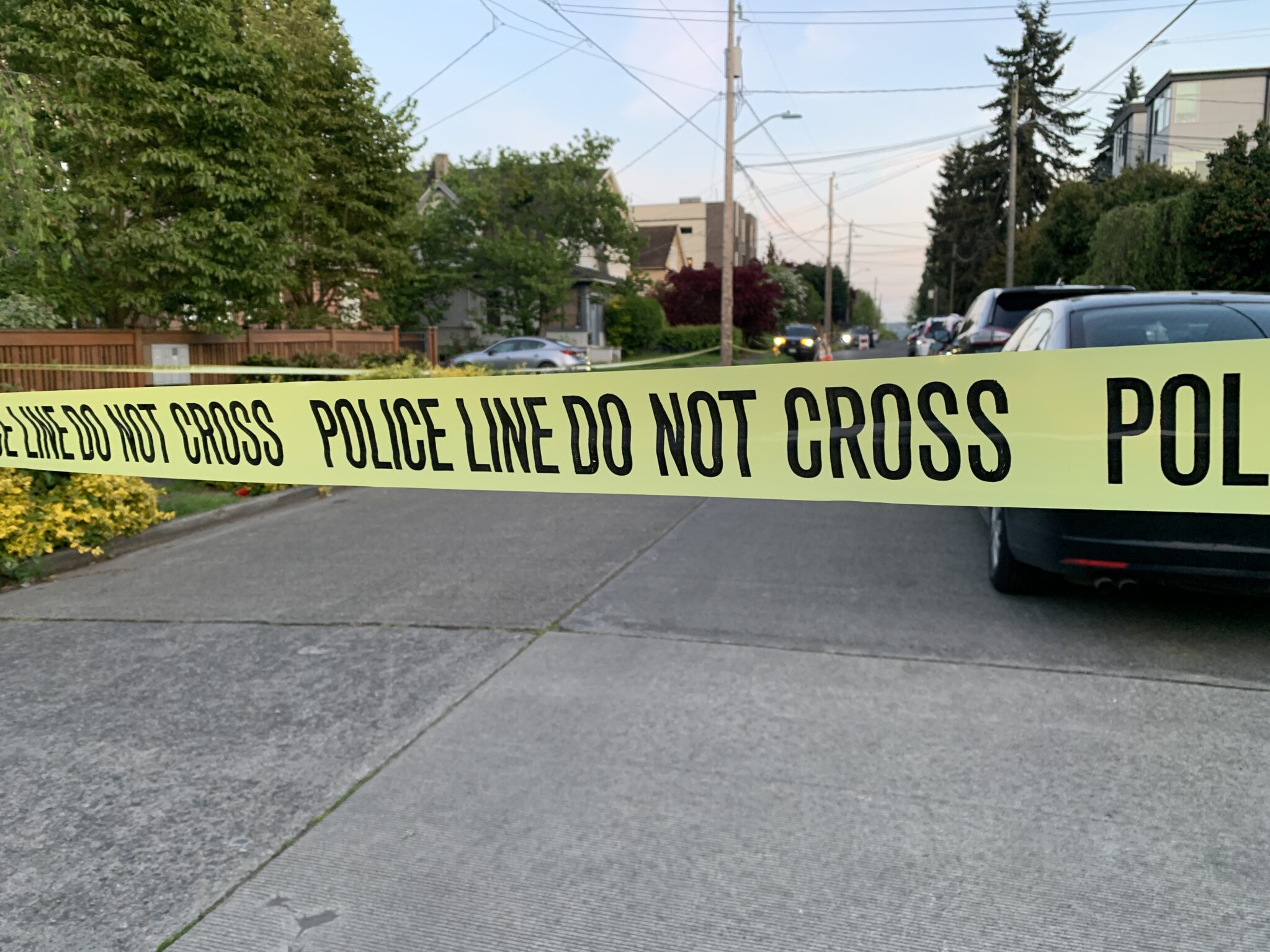Pennsylvania
Most tobacco prevention programs in Pennsylvania are failing, new report says
:quality(70)/cloudfront-us-east-1.images.arcpublishing.com/cmg/ZBL2WK4Q4VC5TEFS5SHDM5QLIE.jpg)
HARRISBURG, Pa. — A new report by the American Lung Association shows most tobacco prevention programs in Pennsylvania are failing
“People are still being exposed to cancerous toxins and materials, said Aimee VanCleave, Director of Advocacy at the American Lung Association of Pennsylvania.
Tobacco use is the leading cause of preventable death in the United States, and according to the Centers for Disease Control and Prevention, one out of every five deaths in the U.S. is caused by tobacco.
Pennsylvania received three Fs and two Ds in the annual State of Tobacco report which focused on five categories including state funding for tobacco prevention programs and state taxes.
“We’ve seen proven polices that show that if you tax tobacco products at certain rates, it acts as a deterrent,” VanCleave said.
The American Lung Association says that more money designation for prevention could help decrease healthcare funding and reach more people in rural communities and youth.
The organization believes taking flavored tobacco products off the market is paramount to that mission.
“When we’re looking at things like Razzle Berry Pop there’s no question that’s marketed towards children,” VanCleave said.
Pennsylvania also got a D in access to treatments and smoke-free air in workplaces, which is an ongoing discussion at the State Capitol.
“There are no policies right now in Pennsylvania that say you shouldn’t use electronic products indoors,” VanCleave said. “We have an opportunity in the legislature to change that.
The American Lung Association says it is a chance to closed Clean Indoor Air Act loopholes.
“15,000 people who are employed in casinos across the Commonwealth who are breathing secondhand smoke in their workplaces – we have an opportunity to change that for them too,” VanCleave said.
You can read more about House Hill 1657, which aims to amend the Clean Indoor Air Act, by clicking here.
Download the FREE WPXI News app for breaking news alerts.
Follow Channel 11 News on Facebook and Twitter. | Watch WPXI NOW
©2024 Cox Media Group

Pennsylvania
Pennsylvania House passes bill restricting how social media companies treat minors

By MARC LEVY (Associated Press)
HARRISBURG (AP) — Pennsylvania’s state House of Representatives on Wednesday approved legislation aimed at regulating how online social media platforms interact with children, although its provisions are similar to those in state laws being blocked in federal courts or in a case before the U.S. Supreme Court.
The bill passed nearly along party lines, 105-95, with 10 Republicans voting with most Democrats for it and seven Democrats voting with most Republicans against it.
It faces an uncertain future in the Republican-controlled state Senate, and the nation’s highest court may soon decide whether state-level provisions like the ones in the bill can be enforced.
The bill would require social media platforms to allow users to report “hateful conduct,” such as threats or bullying, and publicize a policy for how they will respond to such reports. It also would require users under 18 to get parental consent and bar the platforms from “data mining” users under 18, or sifting through their user data to find specific information or develop insight into patterns or habits.
The sponsor, Rep. Brian Munroe, D-Bucks, said the concepts in the bill are nothing new and similar to age-related restrictions that the government has put on movies, driving, drinking alcohol or smoking, or the parental permissions that are required for things like field trips or school sports.
“Time and time again, we’ve acted in the best interests of children by looking at the exposure to potentially harmful activities and said, ‘not at that age and not without your parents’ OK,’” Munroe told colleagues during floor debate.
Parents and children are asking for such regulation, Munroe said.
The Washington-based Computer and Communications Industry Association — whose members include Google, owner of YouTube, and Meta, owner of Facebook and Instagram — pointed out that the legislation, called House Bill 2017, has similarities to laws in other states that are being challenged in court.
“While the goal of protecting younger users is commendable, HB2017 risks infringing upon younger users’ ability to access and engage in open online expression and could cut off access to communities of support,” the association said in a statement. “There are also significant data privacy and security concerns associated with the data collection that would be required to verify a user’s age and a parent/legal guardian’s relationship to a minor.”
California-based Meta has said parental supervision tools and other measures already are in place to ensure teens have age-appropriate experiences online, and that algorithms are used to filter out harmful content.
The bill’s “hateful conduct” provision is based on a 2022 New York law that has been blocked in federal court.
Last year, Utah became the first state to pass laws that require minors to get parental consent before using social media. That law has been challenged in federal court by the trade group NetChoice.
Also, last year, federal judges put on hold an Arkansas law that required parental consent for children to create social media accounts and a California law barring tech companies from profiling children or using personal information in ways that could harm children physically or mentally.
Earlier this year, the U.S. Supreme Court heard arguments in a case that sprang from legal challenges to state laws in Florida and Texas that seek to regulate Facebook, TikTok, X and other social media platforms.
The details of the two laws vary, but both sought to prevent the social media companies from censoring users based on their viewpoints.
___
Follow Marc Levy at twitter.com/timelywriter.
Pennsylvania
What does Biden need to do to win Pennsylvania?
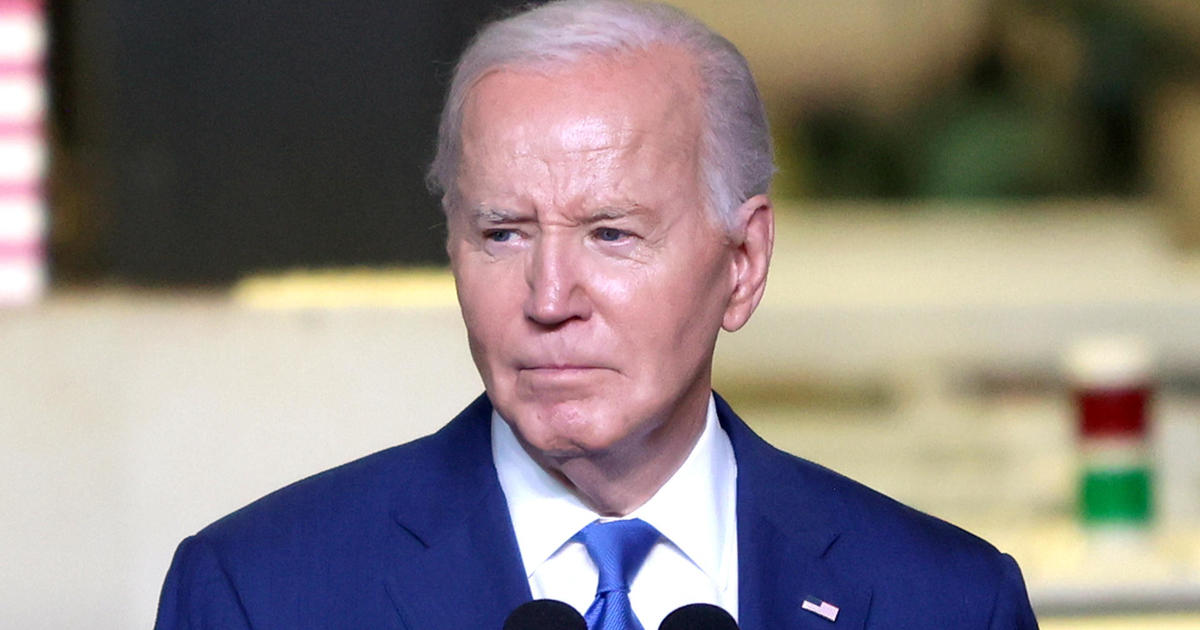
Watch CBS News
Be the first to know
Get browser notifications for breaking news, live events, and exclusive reporting.
Pennsylvania
Stuck between high fees and low wages, how much money will it take to fix PA child care staffing crisis?
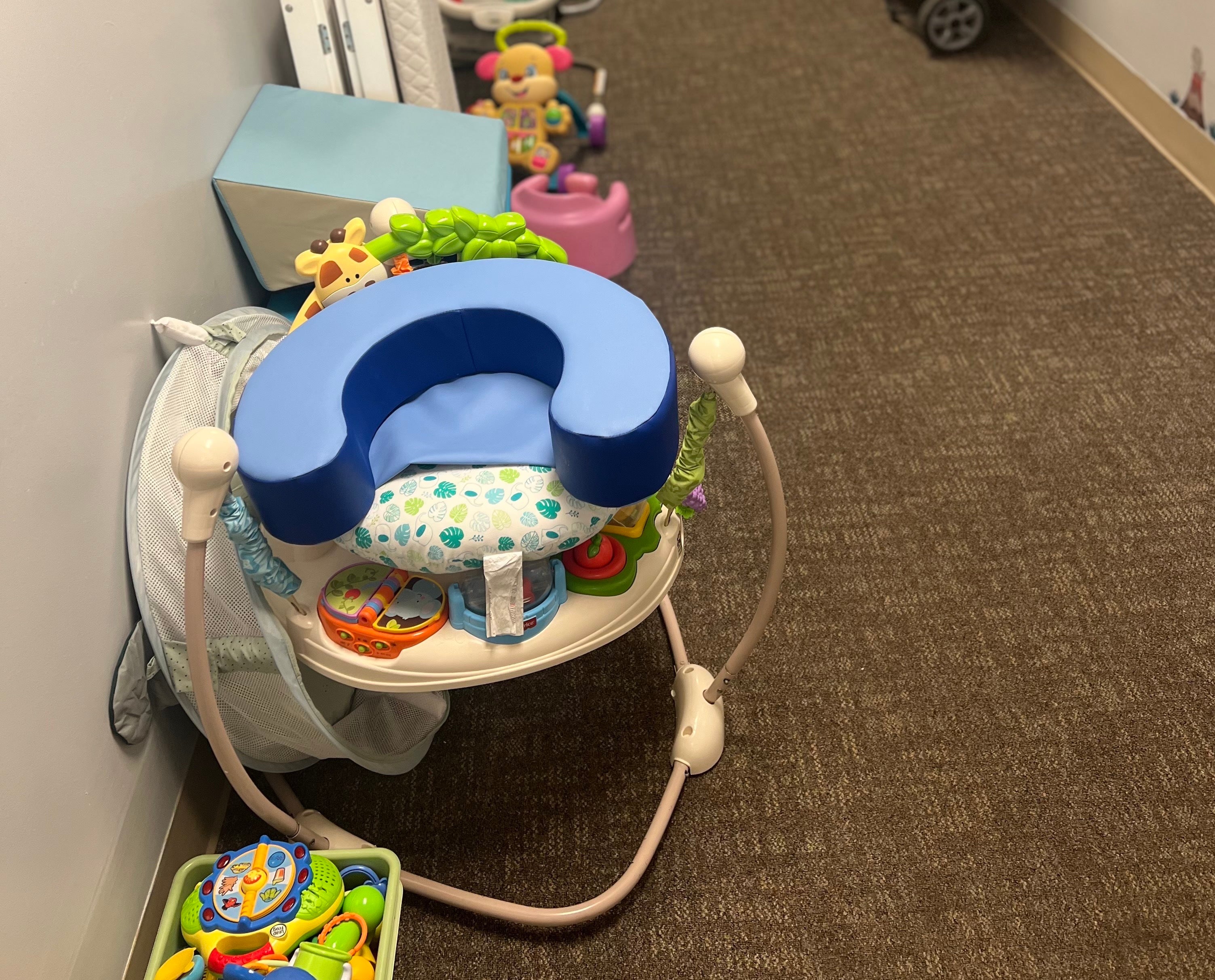
Diane Barber, executive director of the Pennsylvania Child Care Association, called the expanded tax credit “a wonderful thing for families.” But she and other child care advocates and experts said it doesn’t fix the staffing issues providers face.
“While we can reduce the costs for families, it only helps if they can actually find some place for their children to go,” Barber told Spotlight PA.
What the governor is proposing
State funding for two major child care line items has already increased, partially making up for a decline in federal revenue, according to a March report from the state’s Independent Fiscal Office. But overall funding is still down from the height it reached during the pandemic.
And the report noted uncertainties remain for the industry, including whether providers can maintain the wages they increased during the pandemic.
Shapiro’s administration has highlighted how one relatively small increase in his budget proposal — $96,000 in state funds — would allow the state to leverage $62 million in federal funds to increase reimbursement rates for providers in the state’s subsidized child care program. The new rates would be at a federally recommended benchmark, the administration has said.
“We’re very hopeful that this is something that is included in the final budget,” Secretary of Human Services Valerie Arkoosh said during a state Senate budget hearing in March. “It will be extremely important to these child care providers. It will allow them to increase salaries if they wish. It will put more money in their budgets and money they can count on.”
But child care advocates say the proposed higher rates aren’t enough. Barber of the Pennsylvania Child Care Association told Spotlight PA the money for higher reimbursement rates will help providers keep their “lights on, but it’s not going to be able to empower programs to increase staff salaries substantially or to provide benefits.”
The administration has declined to say whether it supports the $284 million proposal from advocates. Department of Human Services spokesperson Brandon Cwalina told Spotlight PA the administration is “happy to work with the General Assembly to review and consider specific proposals that invest in child care.”
But he said the administration anticipates raising reimbursement rates “will create a more stable business environment for child care providers and ensure equal access to child care services,” and that both reimbursement rates and child care worker pay have increased in recent years.
Child care workers would also benefit from the governor’s proposed minimum wage increase to $15 an hour, Arkoosh told lawmakers. And she said the budget plan includes additional funding to help child care providers reach that level should lawmakers raise the minimum wage.
Representatives for the party caucuses in the state legislature expressed support for child care. But they did not commit to a specific funding level.
Stefano, of the Early Childhood Education Caucus, said he wants to see more investment in child care and early education beyond what the governor has proposed. But he said there are unknowns, including how much money lawmakers will decide to spend on K-12 education.
Another co-chair of the caucus, state Sen. Judy Schwank (D., Berks), said she supports the $284 million proposal from advocates.
“Will we get all of it? I’m not so sure,” Schwank told Spotlight PA. “But I’d sure like to see something.”
So would Zelinsky at the Doodle Bug.
“If there was something that would take a little bit of stress off of me, it would be different because I can’t imagine my life doing anything else,” she said. “I would take every one of these kids home with me. That’s what makes me stay.”
Spotlight PA is an independent, nonpartisan, and nonprofit newsroom producing investigative and public-service journalism that holds the powerful to account and drives positive change in Pennsylvania.
-

 Politics1 week ago
Politics1 week agoThe White House has a new curator. Donna Hayashi Smith is the first Asian American to hold the post
-

 Politics1 week ago
Politics1 week agoStefanik hits special counsel Jack Smith with ethics complaint, accuses him of election meddling
-

 Politics1 week ago
Politics1 week agoAnti-Trump DA's no-show at debate leaves challenger facing off against empty podium
-

 News1 week ago
News1 week agoAs student protesters get arrested, they risk being banned from campus too
-

 News1 week ago
News1 week agoVideo: Police Arrest Columbia Protesters Occupying Hamilton Hall
-

 World1 week ago
World1 week agoNine on trial in Germany over alleged far-right coup plot
-

 World1 week ago
World1 week agoStrack-Zimmermann blasts von der Leyen's defence policy
-

 Politics1 week ago
Politics1 week agoNewsom, state officials silent on anti-Israel protests at UCLA
